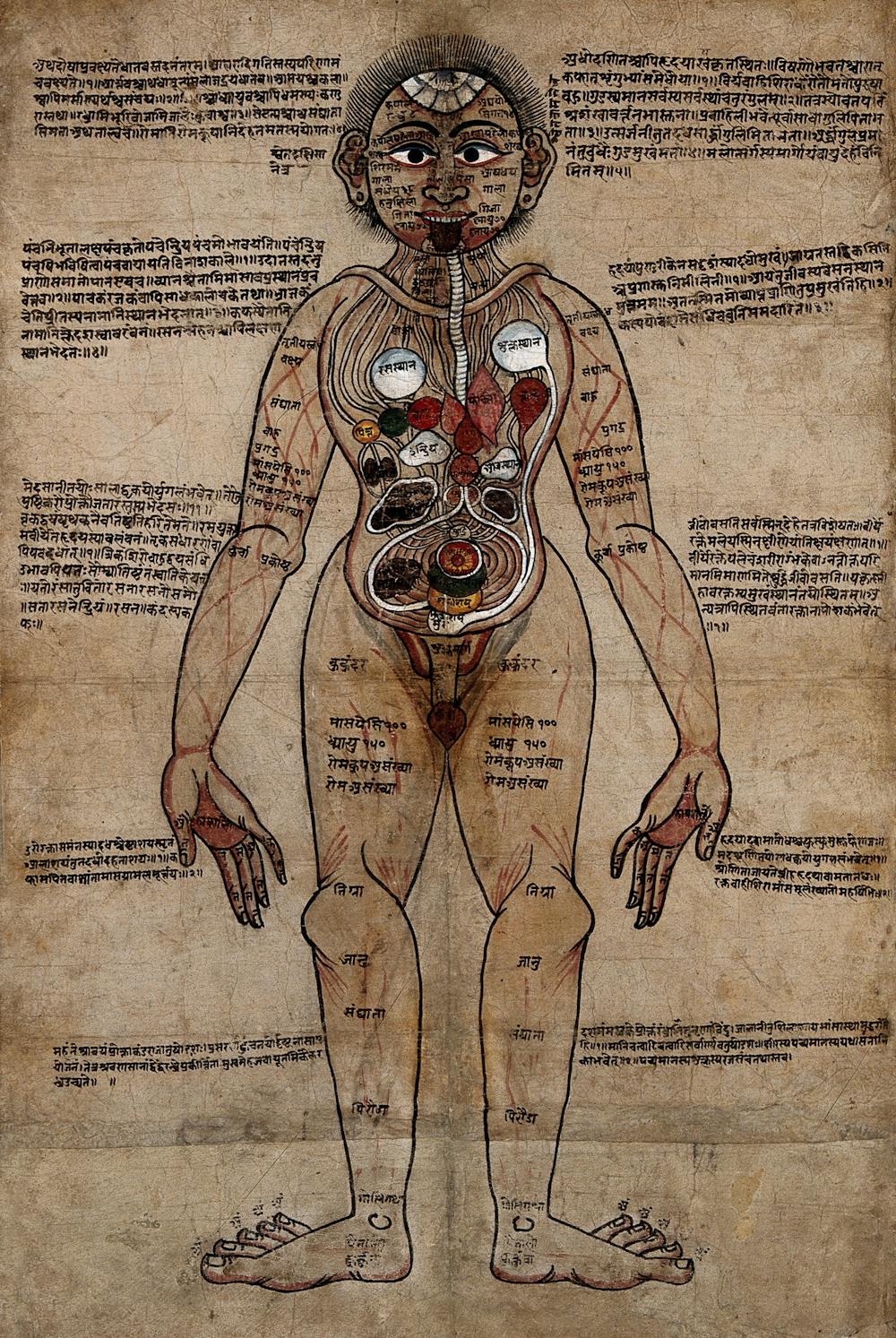A Beginner's Guide to Ayurveda and Its Practical Applications
A Beginner's Guide to Ayurveda and Its Practical Applications
Blog Article
Why You Have to Get It: The Transformative Power of Ayurveda Explained
Ayurveda, a time-honored system of medication, uses a special point of view on health that goes beyond plain signs and symptom management. As we discover the core concepts and methods of Ayurveda, it ends up being evident that its transformative potential expands much beyond traditional health standards-- elevating the concern of how it may reshape your understanding of health.
Recognizing Ayurveda's Core Principles
Ayurveda, usually called the "scientific research of life," is rooted in an all natural approach to wellness that links the physical, psychological, and spiritual measurements of wellness. Central to Ayurveda are the concepts of the five aspects, known as "Pancha Mahabhuta," which consist of planet, water, air, fire, and ether. These elements incorporate to form three key powers, or "doshas": Vata, Pitta, and Kapha, each representing various combinations of emotional and physical attributes.


Understanding these doshas is necessary for recognizing an individual's one-of-a-kind constitution, or "Prakriti," which overviews individualized wellness methods. Ayurveda emphasizes equilibrium, supporting for a lifestyle that balances these energies with diet plan, natural solutions, and day-to-day regimens. Furthermore, Ayurvedic concepts assert that wellness is not simply the absence of illness but a state of ideal vitality.
The method of mindfulness and self-awareness is basic, motivating people to create a much deeper connection with their bodies and the environment. By recognizing the interaction of physical and emotional elements, Ayurveda promotes a comprehensive understanding of health that encourages individuals to take charge of their health, promoting a course towards all natural improvement.
Advantages of Ayurvedic Practices
Consistently integrating Ayurvedic techniques right into daily life can produce a multitude of benefits that boost total wellness. These classic customs concentrate on accomplishing consistency within the spirit, mind, and body, leading to enhanced physical health and wellness, psychological quality, and psychological equilibrium.
One considerable advantage of Ayurvedic methods is their ability to promote gastrointestinal health. Individualized dietary suggestions, based on an individual's dosha, can enhance nutrition absorption and decrease stomach concerns. Additionally, Ayurvedic natural herbs and spices, such as turmeric and ginger, possess anti-inflammatory buildings that can assist in the avoidance and management of chronic illness.
Moreover, Ayurvedic practices stress the value of everyday regimens, referred to as dinacharya, which promote security and predictability in one's life. This consistency can minimize anxiety levels and improve performance. Mindfulness strategies, including reflection and yoga exercise, not only cultivate mental durability yet also boost psychological guideline.
Last but not least, by cultivating a connection to nature and stressing holistic living, Ayurveda urges people to participate in self-care and cultivate a feeling of area. In general, the assimilation of Ayurvedic techniques can lead to an extra well balanced, dynamic, and meeting life.
Key Parts of Ayurvedic Recovery
What are the essential components that add to the efficacy of Ayurvedic healing? At the core of Ayurveda lie 3 key parts: the find out here concept of doshas, the focus on balance, and the holistic technique to health. The doshas-- Vata, Pitta, and Kapha-- stand for the distinct combinations of the five components that govern individual constitutions. Comprehending one's dosha is crucial for tailoring therapies that bring back balance and promote well-being.
Equilibrium is a persisting theme in Ayurvedic healing, reflecting the idea that health emerges from harmony within the body and in between the individual and their setting. Disturbance of this balance can lead to condition, necessitating targeted interventions to restore balance.
Furthermore, Ayurveda welcomes an all natural method, taking into consideration physical, mental, and spiritual aspects of health and wellness. This thorough perspective identifies that emotional health and way of life options substantially affect physical health.
Incorporating Ayurveda Into Daily Life
Incorporating the principles of Ayurveda into every day life can substantially boost general wellness and advertise a deeper connection to one's body and environment. By taking on Ayurvedic techniques, individuals can grow equilibrium and harmony within themselves, adjusting to their one-of-a-kind constitution or dosha.

Incorporating organic remedies and natural components into individual treatment regimens can better enhance Ayurvedic concepts. Using oils for self-massage, understood as abhyanga, promotes flow and leisure. Additionally, integrating reflection or yoga exercise can enhance psychological quality and psychological security, fostering a holistic method to wellness.
Finally, knowing environmental variables, such as environment and seasonal adjustments, makes it possible for people to change their way of livings appropriately, guaranteeing that their methods remain effective and helpful - Ayurveda. By weaving these principles right into everyday life, one can experience profound advantages, bring about an extra balanced and satisfying presence
Personal Changes Via Ayurveda
The application of Ayurvedic concepts into everyday routines commonly results in substantial individual makeovers, as people begin to experience extensive changes in both psychological and physical health and wellness. By welcoming practices such as nutritional modifications, organic supplementation, and mindful reflection, lots of report boosted energy levels, boosted digestion, and improved emotional strength.
Individuals frequently find that the alternative technique of Ayurveda addresses not simply symptoms, however underlying discrepancies within the body and mind. For example, embracing a personalized nutritional regimen based on one's dosha can bring about weight management, reduced swelling, and much better total vigor - Ayurveda. The unification of daily self-care routines, such more info here as oil pulling or Abhyanga (self-massage), promotes a much deeper link to one's body, promoting self-awareness and supporting psychological health.
As professionals delve much deeper right into Ayurvedic philosophy, they often discover a restored feeling of objective and quality in their lives. This transformative journey encourages individuals to cultivate mindfulness, resulting in much healthier partnerships and a greater appreciation for the here and now minute. Inevitably, Ayurveda equips people to take fee of their health, facilitating a long-term and meaningful change in their lives.
Conclusion
By applying and recognizing private doshas customized practices, Ayurveda cultivates ideal health and wellness and psychological strength. The concepts of Ayurveda use important understandings for cultivating a fulfilling and dynamic life.
As we check out the core concepts and techniques of Ayurveda, it comes to be evident that its transformative potential extends much past typical health and wellness paradigms-- increasing the inquiry of exactly how it may reshape your understanding of health.
Ayurveda, typically described as the "science of life," is rooted in a holistic strategy to health that links the physical, mental, and spiritual dimensions of wellness. At the core of Ayurveda lie 3 primary parts: the principle of doshas, the focus on balance, and the all natural technique to wellness. Inevitably, Ayurveda equips individuals to take fee of their health and wellness, promoting a long lasting and purposeful change in their lives.
By recognizing specific doshas and implementing tailored methods, Ayurveda cultivates optimal wellness and psychological strength.
Report this page